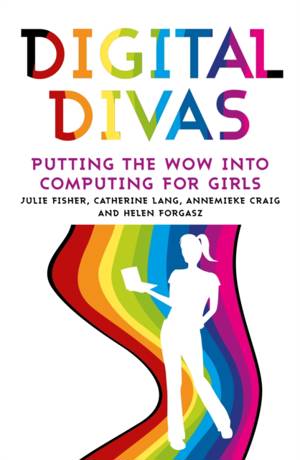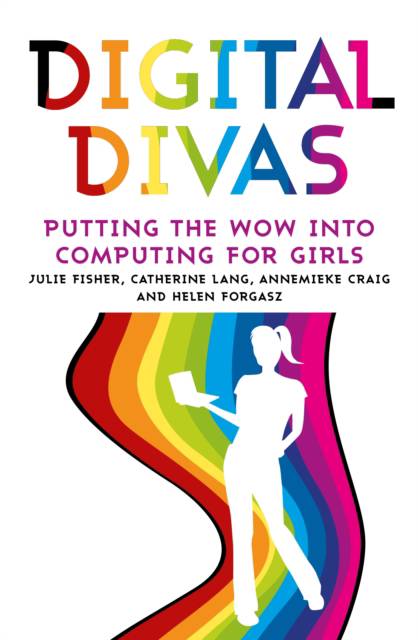
- Retrait gratuit dans votre magasin Club
- 7.000.000 titres dans notre catalogue
- Payer en toute sécurité
- Toujours un magasin près de chez vous
- Retrait gratuit dans votre magasin Club
- 7.000.000 titres dans notre catalogue
- Payer en toute sécurité
- Toujours un magasin près de chez vous
Digital Divas
Putting the Wow Into Computing for Girls
Julie Fisher, Catherine Lang, Annemieke Craig, Helen Forgasz, Amber McLeod
37,95 €
+ 75 points
Description
There is ample literature detailing the general lack of interest that girls show in computing, particularly in their later teen years, along with the subsequent decline in the number of women who enter the information technology (IT) workforce. In 2007, to address this problem, a new and revolutionary program was designed by Australian researchers to excite girls' interest in IT. The program was called 'Digital Divas' and it was unique because it ran in schools as part of the school curriculum. The underlying philosophy of 'Digital Divas' was to provide educationally sound materials that tapped into the interest of girls, delivered in all-girl classes within the school curriculum so as to change girls' perceptions of IT careers. The pilot program was a success and this led to the design of a larger project, the outcomes of which are the subject of this book. A significant amount of pre- and post- qualitative and quantitative data was collected from both teachers and students. A number of focus groups were conducted, one or two years after the girls had undertaken 'Digital Divas'. As a result, the researchers were able to conclusively demonstrate, among other things, that such a program can increase girls' self-efficacy with IT, change their stereotypical image of IT being for men and boys only, and have them seriously consider IT as a career option. The book details the rationale and motivation for developing 'Digital Divas', the evaluation planning and framework which underpinned both the design of the program and the research, the research approach and data gathered, and the results. The wider impact of the program is also discussed. *** Librarians: ebook available (Series: Education) [Subject: Education, Computer Technology, Gender Studies, Youth Studies]
Spécifications
Parties prenantes
- Auteur(s) :
- Editeur:
Contenu
- Nombre de pages :
- 208
- Langue:
- Anglais
- Collection :
Caractéristiques
- EAN:
- 9781922235862
- Date de parution :
- 01-01-16
- Format:
- Livre broché
- Format numérique:
- Trade paperback (VS)
- Dimensions :
- 150 mm x 234 mm
- Poids :
- 294 g







